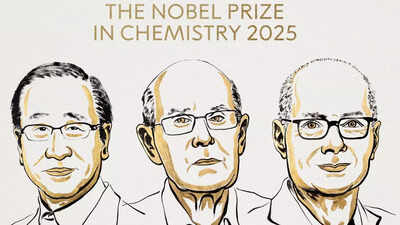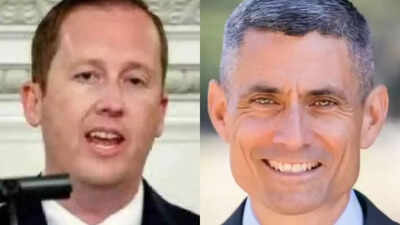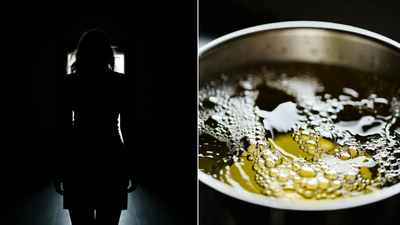Nobel Prize in Chemistry 2025: Susumu Kitagawa, Richard Robson, & Omar M Yaghi wins award for ‘development of metal–organic frameworks’

The 2025 Nobel Prize in Chemistry has been awarded to Susumu Kitagawa of Kyoto University, Richard Robson of the University of Melbourne, and Omar M Yaghi of the University of California, Berkeley, “for the development of metal–organic frameworks.“Announcing the award, the Royal Swedish Academy of Sciences said the trio received the prize for “creating new rules” in chemistry by designing a novel form of molecular architecture.Susumu Kitagawa, Richard Robson, and Omar Yaghi have been awarded the 2025 Nobel Prize in Chemistry for their pioneering work in molecular design. According to a release they were awarded for “they have developed a new form of molecular architecture. In their constructions, metal ions function as cornerstones that are linked by long organic (carbon-based) molecules. Together, the metal ions and molecules are organised to form crystals that contain large cavities. These porous materials are called metal-organic frameworks (MOF). By varying the building blocks used in the MOFs, chemists can design them to capture and store specific substances. MOFs can also drive chemical reactions or conduct electricity.”The journey began in 1989 when Richard Robson experimented with combining positively charged copper ions with a four-armed molecule, forming a crystal with numerous cavities. Though promising, his initial constructions were unstable. Between 1992 and 2003, Susumu Kitagawa and Omar Yaghi advanced the field: Kitagawa demonstrated gas flow through these frameworks and their potential flexibility, while Yaghi developed highly stable MOFs that could be modified for specific functions.“Metal-organic frameworks have enormous potential, bringing previously unforeseen opportunities for custom-made materials with new functions,” said Heiner Linke, Chair of the Nobel Committee for Chemistry.The award recognizes how the MOFs have revolutionised material design, offering chemists the ability to create structures with precise properties for applications in energy, storage, catalysis, and beyond.In 2024, the Nobel Prize in Chemistry went to David Baker for his pioneering work in computational protein design, while Demis Hassabis and John M. Jumper jointly received the other half for their contributions to protein structure prediction.Earlier this week, the 2025 Nobel Prize in Physics went to John Clarke (UC Berkeley), Michel H. Devoret (Yale University and UC Santa Barbara), and John M. Martinis (UC Santa Barbara) for their discovery of macroscopic quantum mechanical tunnelling and energy quantisation in electric circuits.The Nobel Prize in Medicine was awarded to Mary E. Brunkow, Fred Ramsdell, and Dr Shimon Sakaguchi for explaining how the immune system distinguishes between harmful pathogens and the body’s own cells.About the Nobel Prize in ChemistryThe Nobel Prize in Chemistry has a rich history of recognising groundbreaking scientific achievements. Since 1901, a total of 116 Chemistry Prizes have been awarded, honouring 197 laureates. Accounting for repeat winners like Frederick Sanger and Barry Sharpless, 195 individuals have received the award. The prize was not awarded in eight years: 1916, 1917, 1919, 1924, 1933, 1940, 1941, and 1942.The youngest Chemistry laureate is Frédéric Joliot, who received the prize at 35 in 1935 alongside his wife Irène Joliot-Curie.The oldest laureate is John B. Goodenough, who won at 97 in 2019, making him the oldest Nobel laureate across all categories. Of the 195 recipients, only eight have been women, including Marie Curie and Dorothy Crowfoot Hodgkin, who were awarded unshared prizes. Notably, Marie Curie and her daughter Irène Joliot-Curie are the only mother-daughter duo to have each won the Chemistry Nobel.In 2020, Emmanuelle Charpentier and Jennifer Doudna won for developing CRISPR/Cas9, a revolutionary gene-editing tool.What do Nobel Prize winners get?Each Nobel laureate receives a cash prize of 11 million Swedish kronor (around $1 million), funded by the will of Alfred Nobel, the Swedish inventor who established the awards. The prizes are formally presented on December 10, the anniversary of Nobel’s death.The remaining 2025 Nobel Prizes are scheduled as follows: the Literature Prize on Thursday, October 9, at 13:00 CEST; the Peace Prize on Friday, October 10, at 11:00 CEST; and the Economic Sciences Prize on Monday, October 13, at 11:45 CEST.





